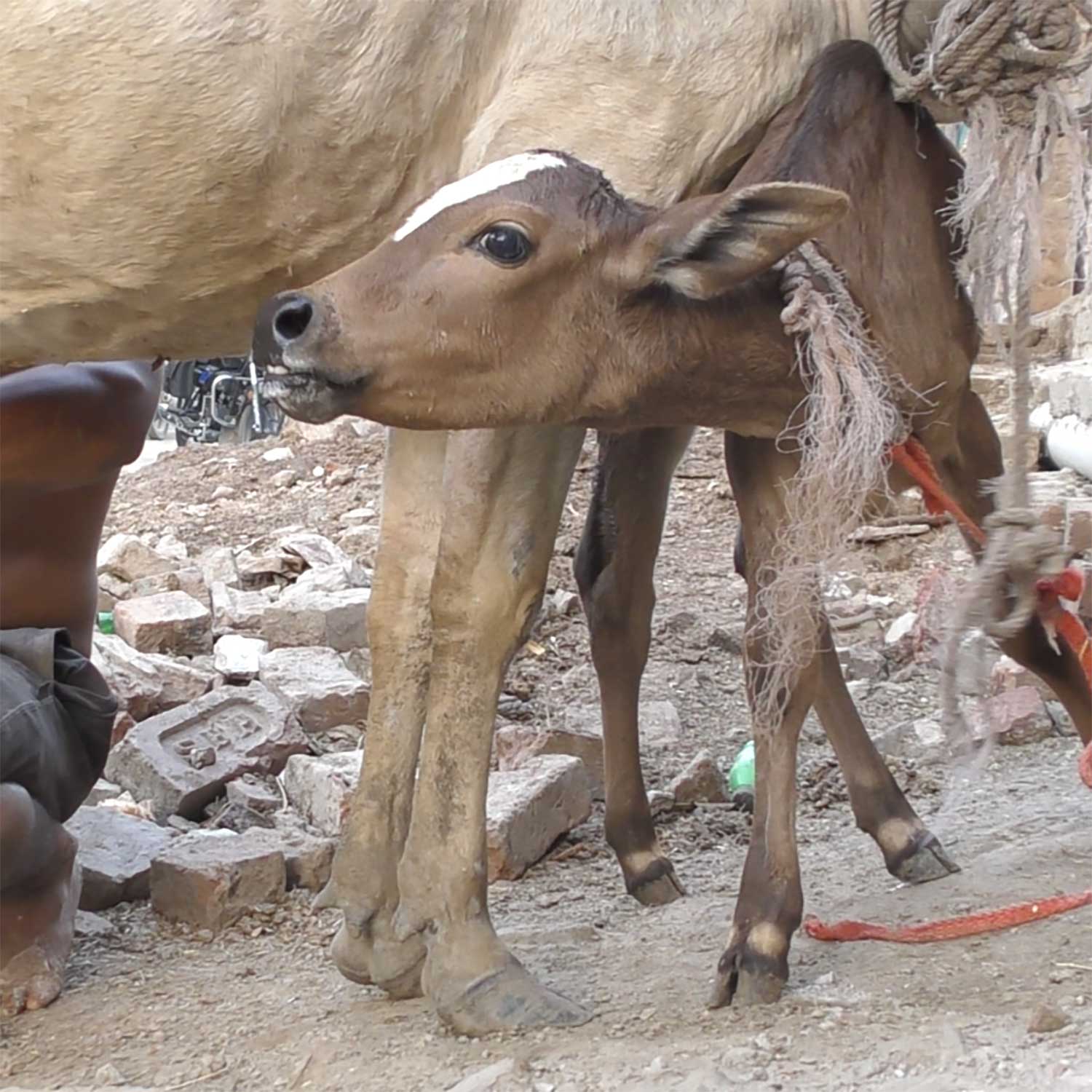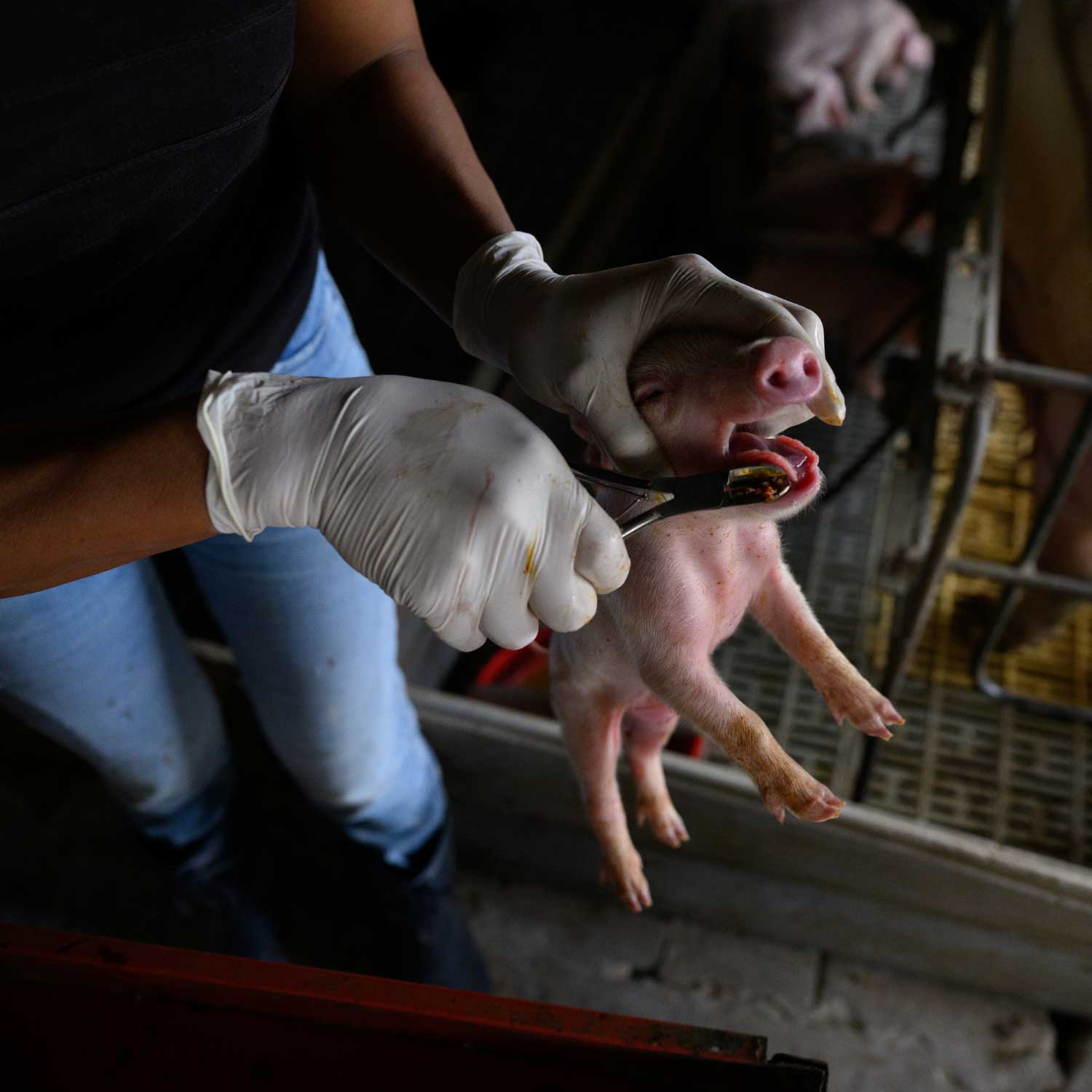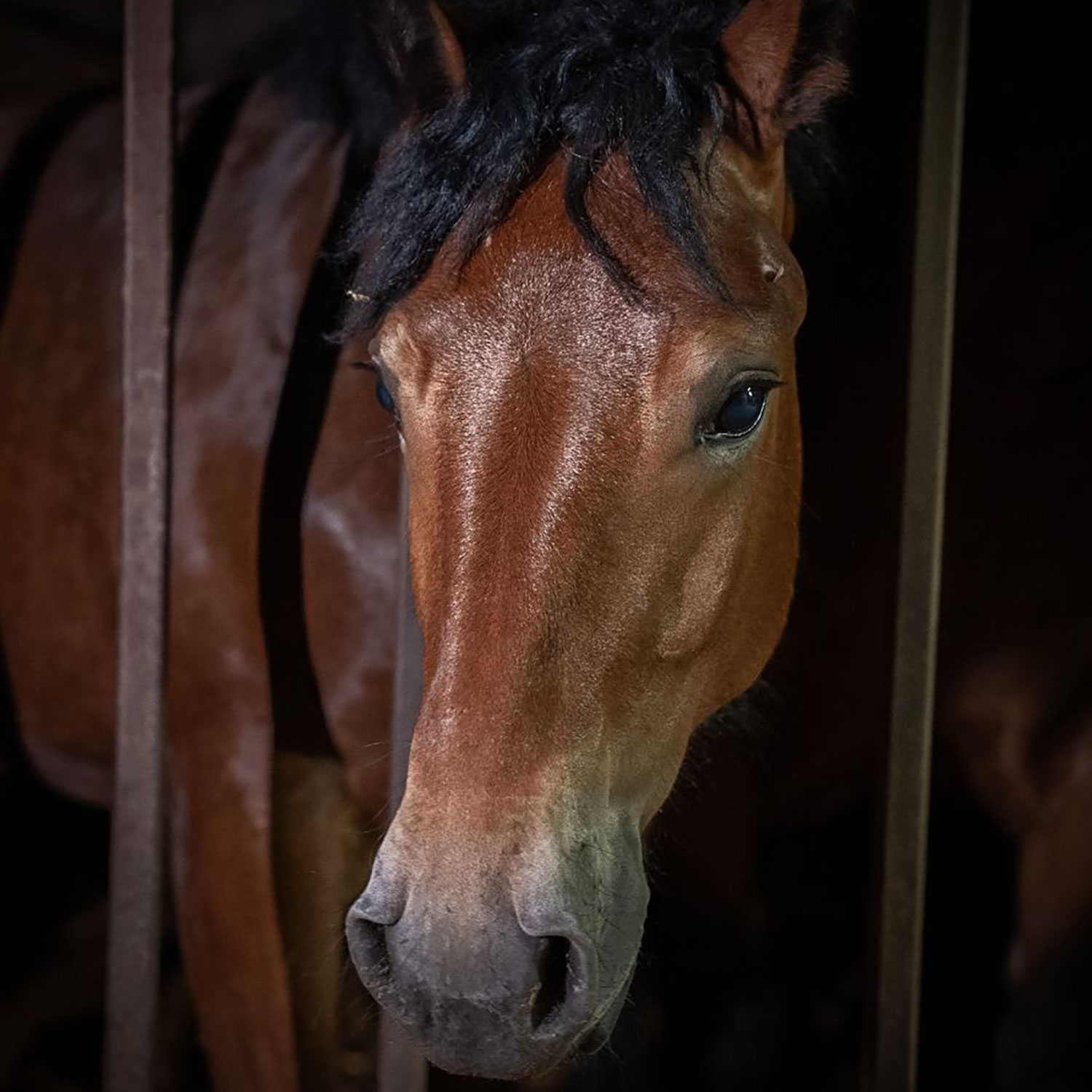Turkeys burned by ammonia, gasping for air on Brazil farm
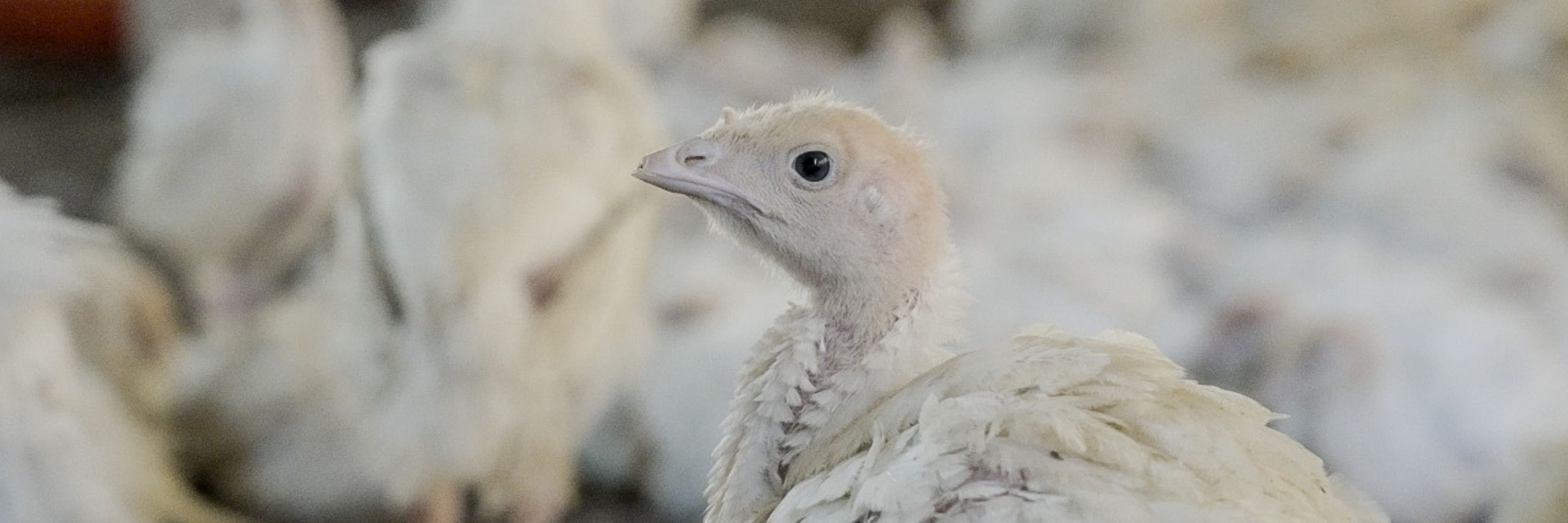
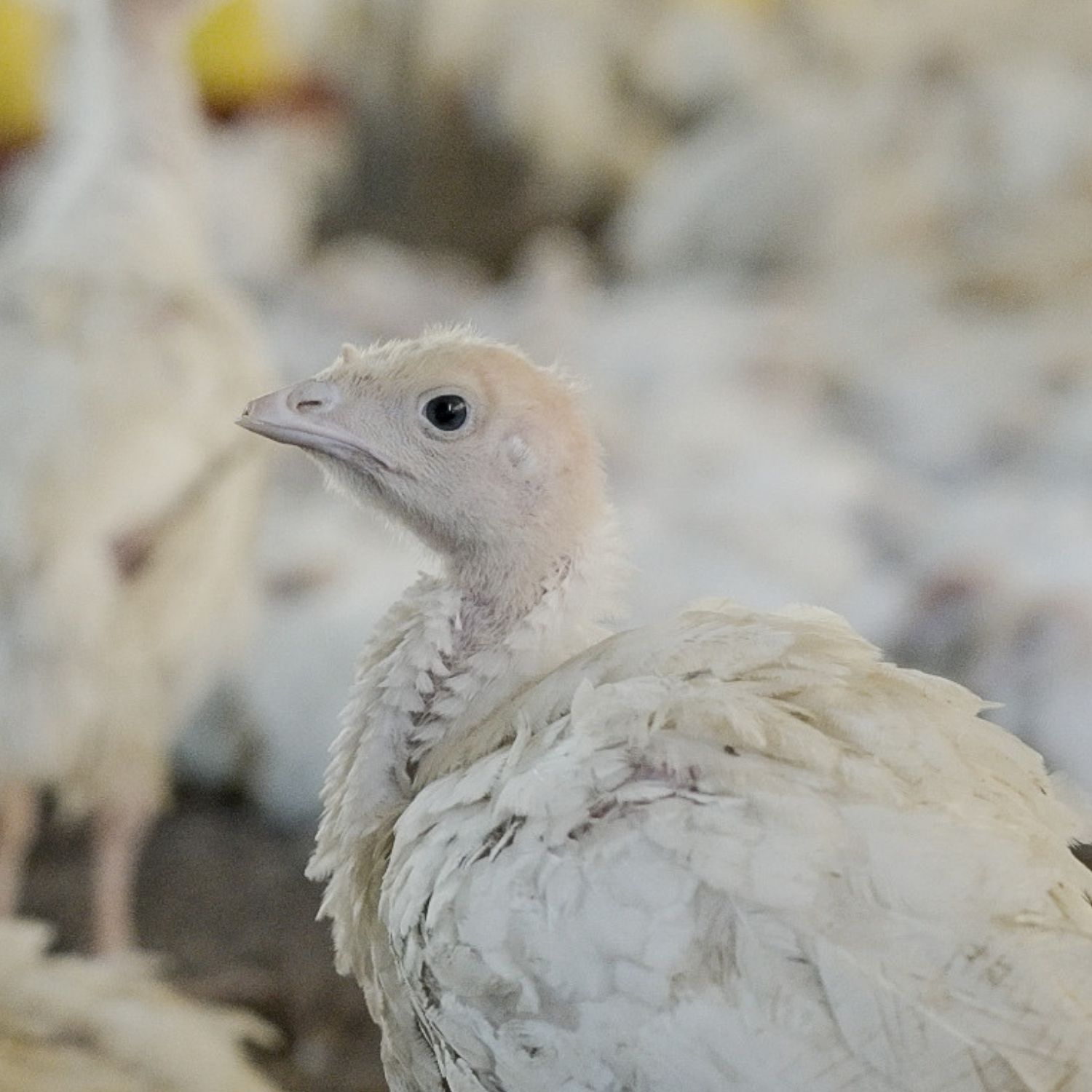
- Animal Equality released its first investigation inside a Brazilian turkey farm.
- Filmed in late 2025, the footage shows grueling conditions at a facility linked to BRF–one of the world’s largest meat companies.
- Thousands of turkeys were packed into a single barn with litter changed once every two years.
- Ammonia from waste caused burning eyes, breathing problems, and painful skin sores on the birds.
- A turkey was filmed bleeding from a facial wound, with no veterinary care provided.
- BRF claims suppliers’ farms offer “environmental enrichment” for the animals, but investigators found empty sheds with little for the birds to explore.
A sharp chemical smell hit investigators the moment they entered the barn. The air inside hung heavy, stinging their noses and eyes.
Turkeys lay on the ammonia-soaked ground, fighting for air. Many had skin burns and open wounds from the harsh fumes.
It was July of 2025, and Animal Equality was obtaining its first undercover footage from a Brazilian turkey farm. Located in the state of Santa Catarina, this operation is tied to BRF–one of the world’s largest meat companies.
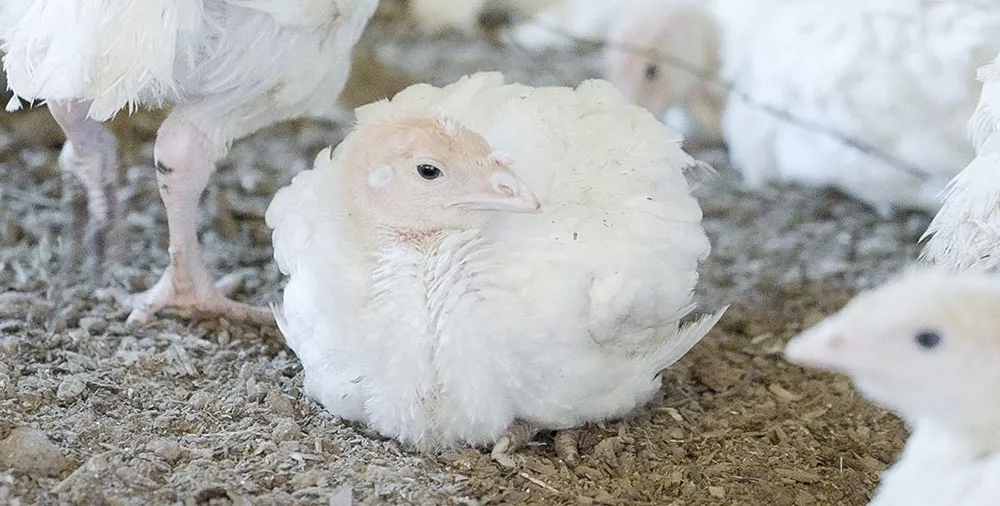
What investigators found shows the true cost of factory farming.
Inside this facility, thousands of birds were crammed together on a floor covered in old “litter,” a material meant to soak up waste. In a recorded conversation, the farm owner admitted the litter was changed only once every two years.
To control the temperature, workers kept the barns sealed. This trapped the birds—and the ammonia from their feces and urine—inside.
These turkeys were bred to grow as fast as possible, turning their entire lives into a cycle of eating and rapidly gaining weight.
Those with injuries did not receive medical care. In one scene, a bird was shown bleeding from a wound on their face.
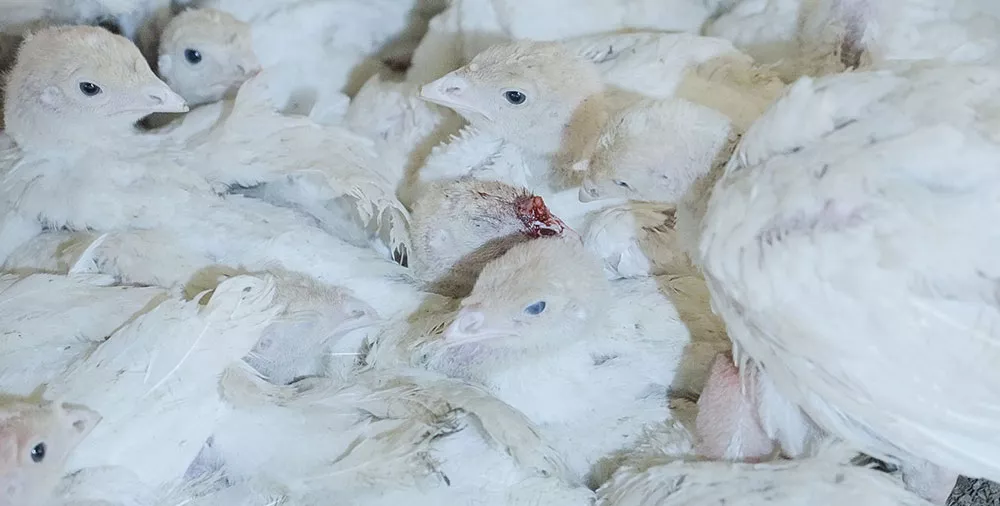
Others lay on the floor, barely moving and breathing differently from the rest of the flock. They appeared apathetic, with the farm owner noting they were likely sick.
Producers often prefer to bear the financial loss from animal deaths rather than invest time and resources in medical treatment. Death is inherent to this production system…” – Marina Lemes, PhD in Animal Science and Animal Equality Project Manager
BRF–best known for its brands Sadia and Perdigão–has claimed all of its turkey farms provide “environmental enrichment.”
Inside the barns, investigators found only a few pecking objects—simple items the birds can peck at to stay busy. There weren’t nearly enough for the large number of animals, and many turkeys had already lost interest in them.
Investigators noted that turkeys are curious, social animals who form bonds and look for stimulation. In these barns, they had almost none, leaving them unable to carry out the most basic natural behaviors.
A pattern seen far beyond Brazil
The new footage mirrors problems Animal Equality has exposed before.
During an investigation released in 2019, newborn turkeys in Spain were thrown away alive, often with their eggshells. Others had the tips of their beaks burned to control pecking in crowded barns.
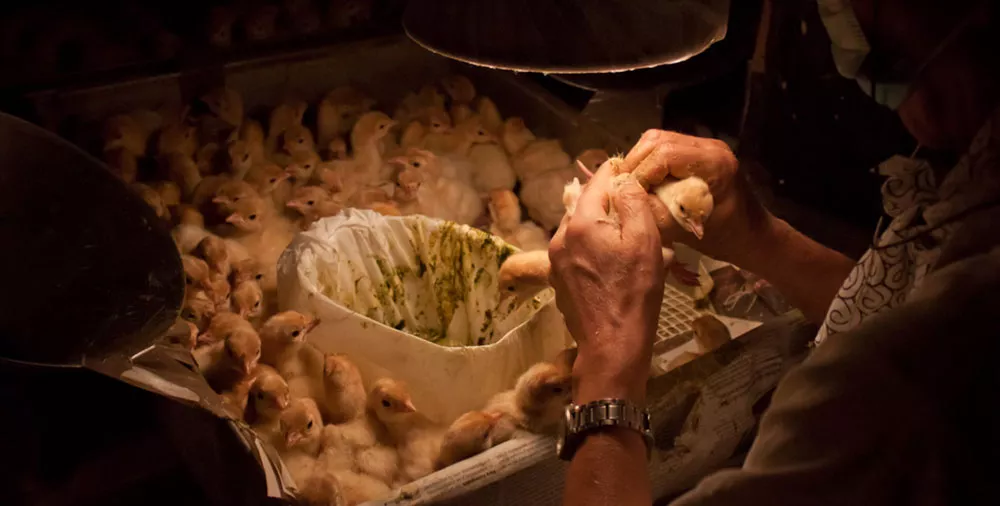
Similar issues have been documented in U.S. factory farms, where nearly 46 million turkeys are killed each year for Thanksgiving alone. As slaughter speeds rise in the U.S., many birds reach scalding tanks—used to loosen feathers—while they are still alive.
But advocates say the problem is bigger than turkeys. Cows, chickens, pigs, and lambs face cruelty in U.S. farms, as well. Much of the country’s meat is also imported—including from Brazil—linking U.S. grocery stores to a global system.
Explore Animal Equality’s full library of investigations to see how cows, chickens, pigs, and turkeys live inside today’s factory farms.
Better choices for every meal
The true spirit of the holiday season is love, compassion, and hope for a better world. Yet behind many traditional dishes lies invisible pain and suffering.” – Carla Lettieri, Executive Director of Animal Equality Brazil
As more people discover how turkeys are raised, many wonder what their holiday tables could look like without the cruelty.
For some, the journey begins with a new recipe. For others, it turns into a habit that shapes every meal.
Love Veg offers simple, plant-based guides for holiday favorites, weeknight dinners, and the quick bites that carry people through the year.
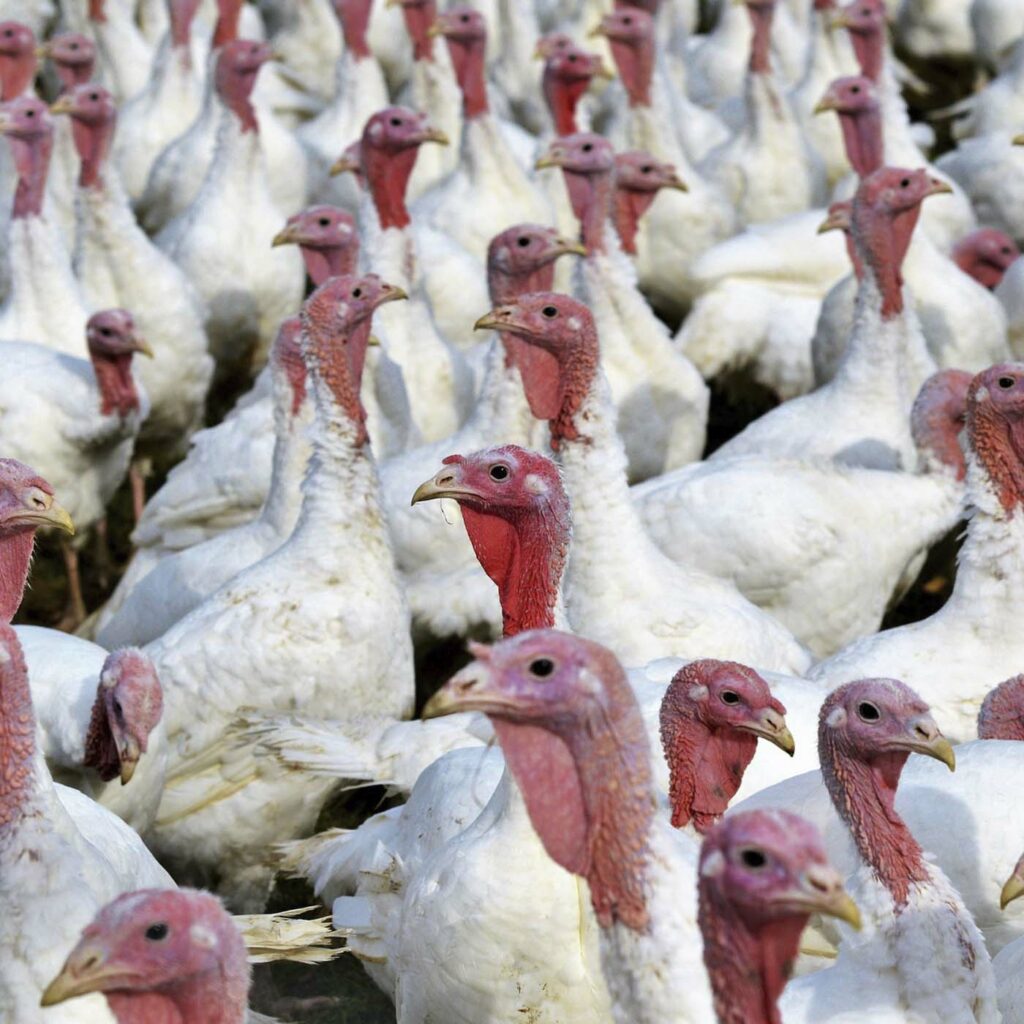
SAVE THE TURKEYS
Each turkey has a distinct personality and the desire to socialize.
Protect these unique and curious animals by choosing plant-based, cruelty‑free alternatives to meat.

